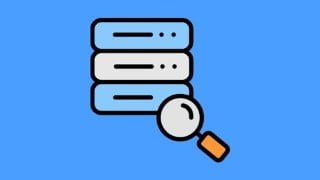Server Performance and Activity Monitoring
|
Learn how to effectively monitor and assess the performance of Microsoft SQL Server databases. This course is designed for beginners and covers topics such as installation, database activity monitoring, and using indexes. Discover how to track performance trends and troubleshoot issues using the tools provided by SQL Server and the Windows operating system. Choose from different editions of SQL Server based on your needs, from the free Developer edition for testing and development to the Enterprise edition for larger and critical applications. Improve your server performance and monitoring skills with this comprehensive course.
What you’ll learn
- SQL Server Installation
- Sample Database Installation
- SQL Server Management Studio Installation
- SQL Server Performance Monitoring
- Database Activity Monitoring
- Data Collection
- Using Extended Events
- Using Indexes
The goal of monitoring databases is to assess how a server is performing. Effective monitoring involves taking periodic snapshots of current performance to isolate processes that are causing problems, and gathering data continuously over time to track performance trends. Microsoft SQL Server and the Microsoft Windows operating system provide utilities that let you view the current condition of the database and to track performance as conditions change.
Microsoft SQL Server is a relational database management system developed by Microsoft. As a database server, it is a software product with the primary function of storing and retrieving data as requested by other software applications—which may run either on the same computer or on another computer across a network.
The core component of the SQL Server is the Database Engine. The Database Engine consists of a relational engine that processes queries and a storage engine that manages database files, pages, pages, index, etc. The database objects such as stored procedures, views, and triggers are also created and executed by the Database Engine.
SQL Server has four primary editions that have different bundled services and tools. Two editions are available free of charge:
SQL Server Developer edition for use in database development and testing.
SQL Server Expression for small databases with the size up to 10 GB of disk storage capacity.
For larger and more critical applications, SQL Server offers the Enterprise edition that includes all SQL server’s features.
SQL Server Standard Edition has partial feature sets of the Enterprise Edition and limits on the Server regarding the numbers of processor core and memory that can be configured.
Who this course is for:
- Beginners to Server Performance and monitoring
User Reviews
Be the first to review “Server Performance and Activity Monitoring” Cancel reply
You must be logged in to post a review.







There are no reviews yet.